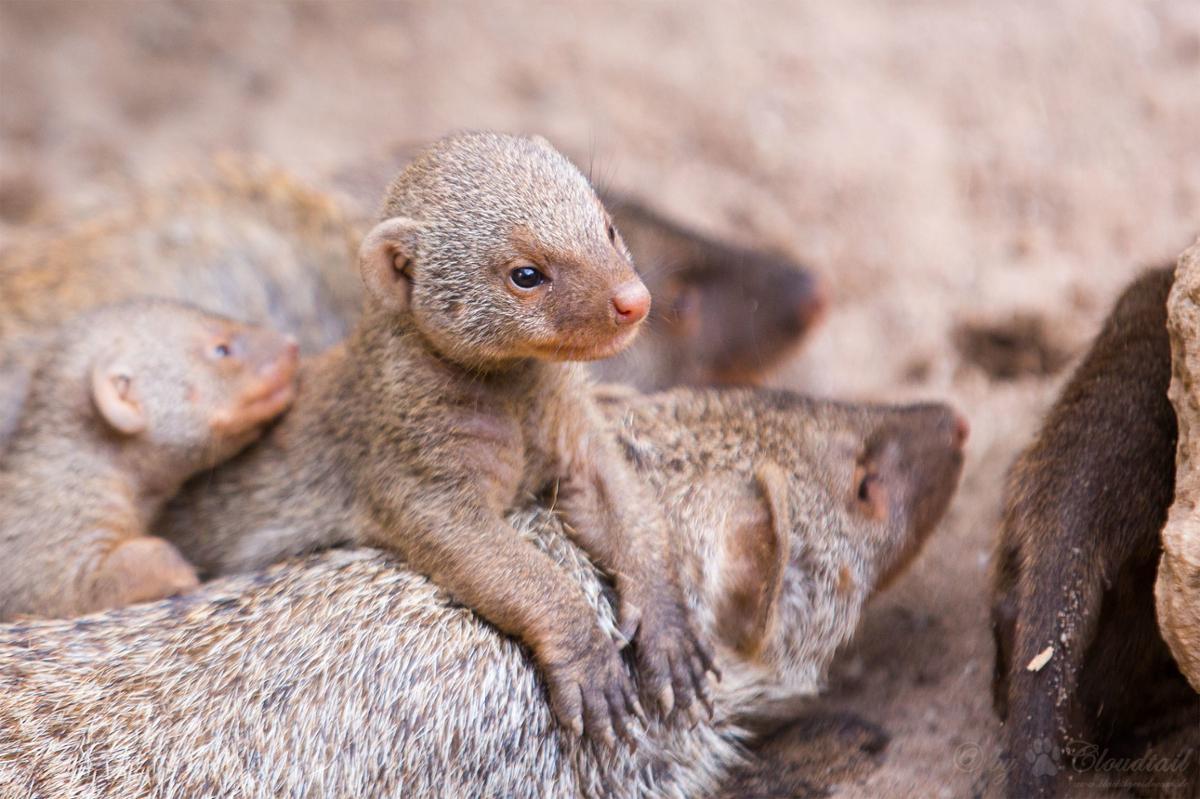We all know that ignorance isn’t bliss… but can it be fairness? Philosophers have argued that, if we act from behind a “veil of ignorance” about how we could personally benefit from our actions, our actions would be more just. A group of scientists wondered if they could see this play out in the animal kingdom.
Mothers in groups of banded mongooses give birth to pups at the same time. Scientists have noted that this removes parentage cues, meaning that the mothers aren’t necessarily aware of which pup is theirs. The mothers suckle all the pups born in the synchronous litter, not just their genetic offspring, and pups suckle from multiple mothers during a feeding session. When the pups emerge from the den, they do form a bond with an older mongoose that feeds and protects them, but this mongoose isn’t their parent.
Scientists wanted to know how this arrangement—mothers not knowing which pups were theirs—affects a situation in which there are inequalities between the pups. Does their ignorance reduce those inequalities, like we would expect if we bought the “veil of ignorance” idea?
To find out, the team studied seven groups of banded mongooses. They fed half of the pregnant mothers an extra 50 grams of cooked egg for a period of time. As a result, the females getting extra food birthed pups that weighed more than the other half. The team observed that, after they gave birth, the mothers who got extra food gave extra care to the smaller pups, and the differences in size disappeared quickly.
For mongooses, a veil of ignorance seems to benefit everyone.









